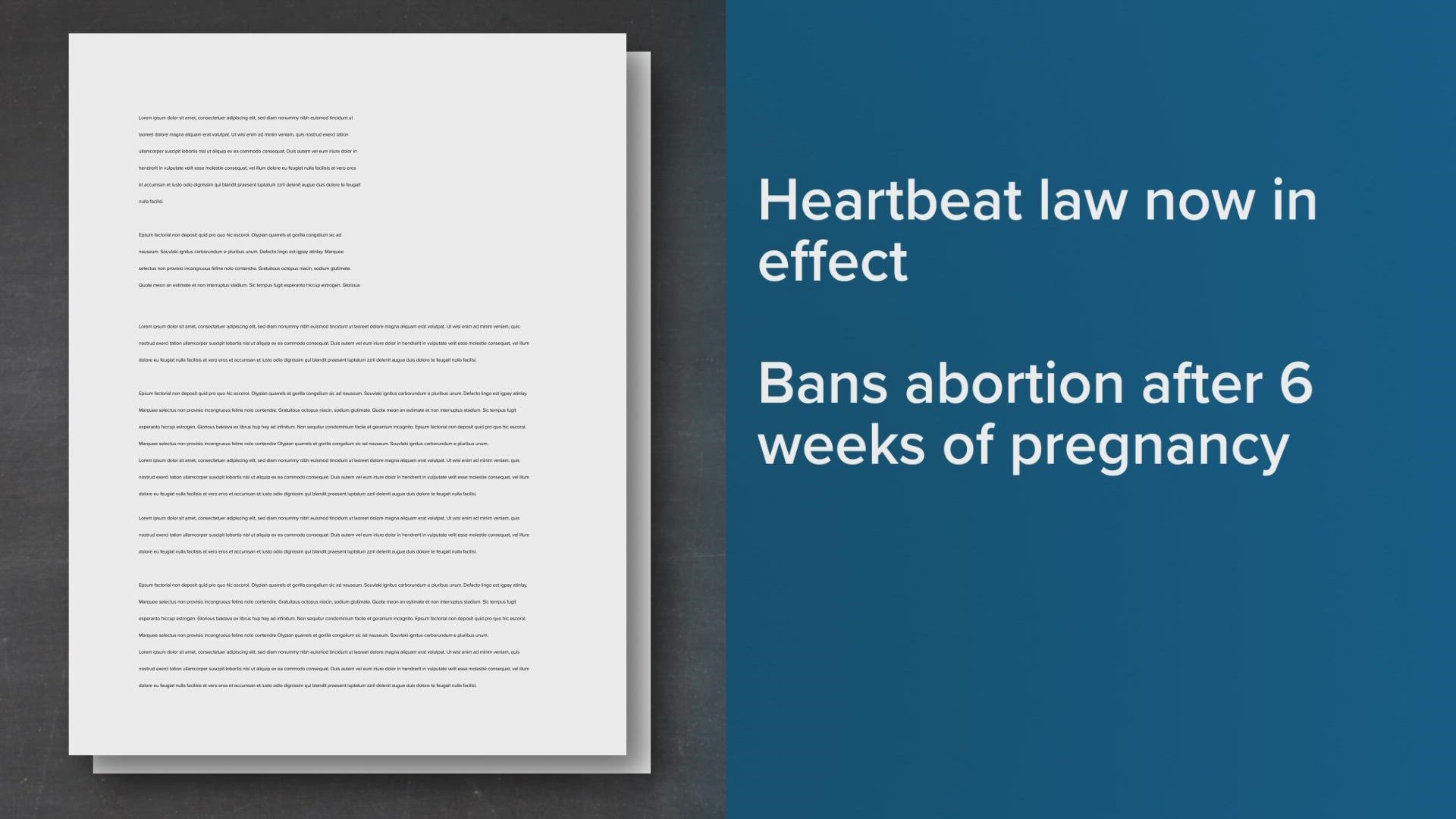NASHVILLE, Tenn. — Tennessee implemented a "heartbeat" ban on abortions nearly two years after a federal court blocked it from taking effect.
The Sixth Circuit Court of appeals on Tuesday vacated the district court's July 2020 injunction on a law that bans abortions in Tennessee 6 weeks into pregnancy. The law also bans abortions for reasons of sex, race, or fetal diagnosis of Down Syndrome.
Tennessee Attorney General Herbert Slatery asked Friday to immediately implement the state's abortion bans instead of waiting 30 days after the U.S. Supreme Court overturned Roe v. Wade. On Tuesday, he announced that it was in effect.
Slatery previously asked the Sixth Circuit Court of Appeals to allow the state's anti-abortion laws to go into effect as soon as possible. Those laws were originally written with a 30-day waiting period before they would take effect, starting the day that Roe v. Wade is overturned.
With the court's decision -- one of those two laws can now begin. The more restrictive total ban on abortion procedures is set to begin on July 24 if the court does not allow the state to bypass the 30-day waiting period.
The law would effectively criminalize anyone who provides abortion services in the state. The law makes it a Class C felony to provide abortion treatments, and takes away the license of any medical professional who administers such treatments.
Because it charges people with a felony, they also can lose their voting rights and face consequences like prison time or fines.
It also specifically does not try to punish women who receive abortion treatments. It allows abortion treatments if the mother's life would be at risk, but specifically excludes cases where a provider treats someone by giving them an abortion because they could attempt to kill themselves. Abortions in those cases would be illegal.
In the appeal to the court, the Attorney General claimed that the 30-day waiting period goes against Tennessee's constitution, which he said explicitly restricts abortion treatments. In essence, he says criminal charges need to be immediately put on the books for abortion treatment providers so the state's legislation can stay in line with its constitution.
The request was filed as an emergency motion.
"Each day this Court allows the injunction to remain in place is another day that the lives of unborn Tennesseans are at risk," the motion says.
In a statement, Slatery also mentioned the ruling in Obergefell v. Hodges, which guaranteed people the right to same-sex marriage.
"To state the obvious: Dobbs is a momentous decision," he said. "Our republic is founded on the rule of law. Accordingly, we give respect and deference to the Court on occasions when its decisions align and support our state laws, and in cases when a decision might be contrary to Tennessee state law and what the majority of Tennesseans want, as was the case with the 2015 Obergefell decision."
The American Civil Liberties Union and other plaintiffs responded to the motion Monday, reluctantly asking the court to dismiss the lawsuit -- saying the case is now moot because of the reversal of Roe v. Wade.
After the state responded Monday evening, the court decided to vacate the injunction specifically on the six-week abortion ban.
"This six-week ban forces people to carry pregnancies to term against their will and to face the resulting life-altering consequences,” said Hedy Weinberg, ACLU of Tennessee executive director. “The ban will disproportionately impact those who have always faced systemic barriers to care – including communities of color, young people, and people with limited incomes. With our partners, we will take the fight for control of our own bodies to the streets, to the capitol, and to the ballot box, until we have the power to make the best decisions for ourselves and our families.”
Experts also said rights like gay marriage, interracial marriage and access to contraception could be at stake because they were also considered "substantive due process liberties" in previous cases. Access to abortion treatments was also previously considered a "substantive due process liberty."

